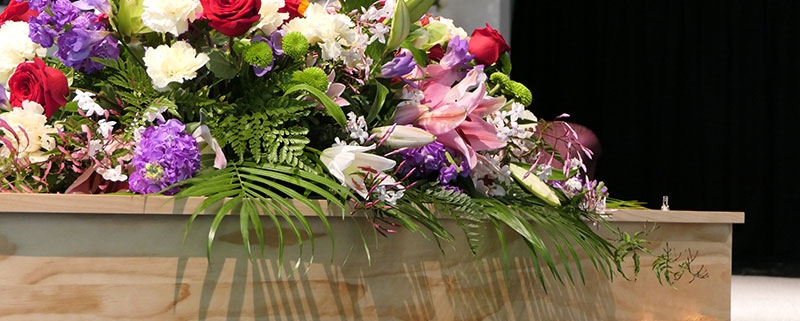by Lisa McIntosh
Being with people who are dying – whether or not they are close to us – can be uncomfortable, daunting and sad. We might worry about saying the wrong thing or what to do to be a witness of God’s grace and love.
Even people with years of experience caring for or ministering to people who are dying, such as Sue Westhorp, say that each situation is different and that feeling uncomfortable may always be part of the process.
Sue is the spiritual care manager and Clinical Pastoral Education Centre director for Melbourne’s Austin Health. She was formerly a palliative care chaplain at Royal Melbourne Hospital and was a pastoral care worker for St Paul’s Lutheran Church Box Hill.
‘I’ve never become used to being with people who are dying’, she says.
‘I don’t take it for granted; it’s different every time and it’s profound every time. It’s important to be very aware of our own discomfort and anxiety. It’s okay to be uncomfortable. Your own mortality is being confronted in the process.’
However, while she says there is ‘no formula’ for this kind of pastoral care, just being present and listening are the two constants of our call as Christians, regardless of the context.
‘I think as much as each of us is able to individually, we’re called to sit with the person in grief, or as someone is dying, to actually just follow where they want to go with that and if they want to talk about it, or if they don’t’, Sue says.
‘I’ve had experiences in palliative care of people who are dying who’ve got no interest in faith or religion, who a day out from dying start asking the big questions. Or someone who’s had a very, very strong faith and gets to a week before they die, and suddenly they’re very wobbly about their faith. So it’s about responding to what you see in front of you and listening, and the ways in which we show up for people to show them God is present with them.
‘They’re ultimately on a journey they can only do alone. We can’t go on that journey with them, but we can be present with them as much as possible.’
Pastor Tim Klein, a former funeral director who these days serves the flock at Faith Warradale in suburban Adelaide and is LCA SA-NT District First Assistant Bishop, says funerals are ‘always gospel opportunities’, regardless of the faith of those who attend.
‘The funeral of a person of faith brings with it a wonderful testimony of the gospel’, he says. ‘Others can be challenging, because we don’t want to offend those who have no faith, yet at the same time we can bring good news and hope into that broken place. Funerals are a time of sadness, joy, hope and blessing in varying proportions.’
He says his main objective as a funeral director was to minimise ‘the organisational stress for a family so that they could attend to their grief and not be distracted by other things’.
‘That’s not to say a funeral director is immune to the grief. I was often thankful for the dark shades of my sunglasses, hiding my saddened eyes.’
Not surprisingly, he says leading funerals as a pastor is very different. ‘My prime focus is to provide pastoral care surrounding the funeral – caring for the bereaved, praying, and preparing a funeral service with them that brings God’s word of comfort into their lives.’
When Pastor Joseph Theodorsen, who serves the Top End Parish in the Northern Territory, was about to begin his ordained ministry he told The Lutheran that the privilege of being a pastor he was most looking forward to was ministering ‘to the sick and dying’. He says that is largely because of the way that our western culture ‘treats death and dying in such a private way’.
‘In this private space, people are able to truly show the deep emotions that come with the knowledge of the terminal illness or imminent death of loved ones – thoughts and feelings that are normally hidden from public view’, Pastor Joseph says. ‘To be invited into such a space, indeed often welcomed, is something that is truly a great privilege.
‘Being able to share in the pain and suffering of such times, and yet bring the hope and certainty of the gospel to people who are often in the midst of great difficulty, is something that I find very humbling.’



